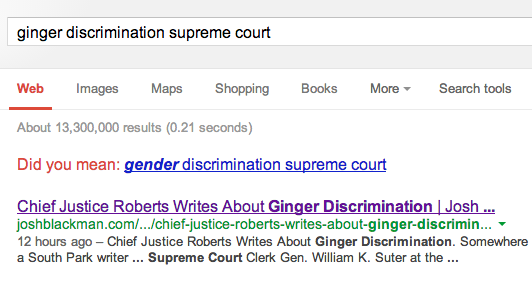CJ Roberts wrote, “There is no denying, however, that the conditions that originally justified these measures no longer characterize voting in the covered jurisdictions.” Justice Thomas wrote, “Today, our Nation has changed.” Justice Ginsburg disagrees, “In the Court’s view, the very success of §5 of the Voting Rights Act demands its dormancy.”
I’ll have more once I digest this opinion…
Update: More from Roberts’s opinion:
Nearly 50 years later, things have changed dramatically. …
There is no doubt that these improvements are in large part because of the Voting Rights Act. The Act has proved immensely successful at redressing racial discrimination and integrating the voting process. See §2(b)(1), 120 Stat. 577. During the “Freedom Summer” of 1964, in Philadelphia, Mississippi, three men were murdered while working in the area to register African-American voters. See United States v. Price, 383 U. S. 787, 790 (1966). On “Bloody Sunday” in 1965, in Selma, Alabama, police beat and used tear gas against hundreds marching in sup- port of African-American enfranchisement. See Northwest Austin, supra, at 220, n. 3 (THOMAS, J., concurring in judgment in part and dissenting in part). Today both of those towns are governed by African-American mayors. Problems remain in these States and others, but there is no denying that, due to the Voting Rights Act, our Nation has made great strides.
Roberts includes a chart showing voter registration numbers from 1965 to 2004, to illustrate that the gap between white and black rates has dropped precipitously.
Roberts repeated the point over and over again that the country of today is not the country of 1965:
In 1965, the States could be divided into two groups: those with a recent history of voting tests and low voter registration and turnout, and those without those characteristics. Congress based its coverage formula on that distinction. Today the Nation is no longer divided along those lines, yet the Voting Rights Act continues to treat it as if it were.
